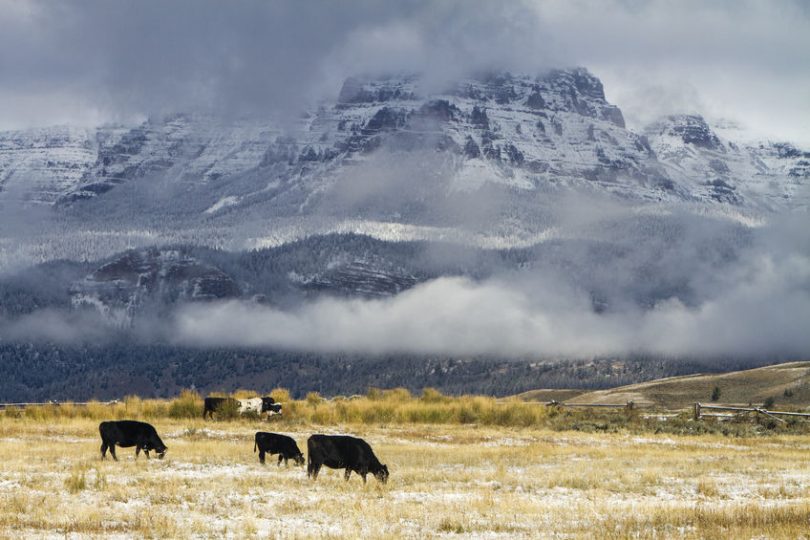Blockchain has been making waves in industries everywhere. And now it has penetrated the unlikeliest of places – the Wyoming cattle business. In 2017 Wyoming ranches generated $1.1 billion in cattle sales and the state is home to 2.1 million cows.
A new blockchain start-up, BeefChain, wants consumers to be able to track the farm conditions of the beef they buy in stores.
BeefChain claims this will benefit not only consumers but also the ranchers. Currently, ranchers who diligently raise cattle in healthier conditions often receive similar prices to cattle raised in unknown circumstances.
“The unique methodology that each ranch uses … what grass they’re fed on, that’s all lost, and consequently ranchers are getting pennies on the dollar,” says Beefchain CEO Rob Jennings.
In short, BeefChain believes the Wyoming ranchers rarely receive a price that reflects these commitments to good farming practices.
What does BeefChain propose?
Firstly, BeefChain wants to use IoT tags that can upload data to an immutable blockchain which consumers can then access by scanning a barcode. The tags cost $5 each.
Secondly, BeefChain wants to circumvent the middlemen problem and capture more of the premium pricing. Today ranchers sell their cattle to feedlot and food processors who fatten them up before selling them to retailers. BeefChain wants to get into this business.
However, beyond investment and ‘exclusive, long-term relationships with buyers across the globe,’ the details are scarce.
Partnerships
Nevertheless, BeefChain has some partnerships to boast about. Along with the other blockchain food tracing start-up TE-FOOD, it also has a partnership with the IBM Food Trust and the University of Wyoming.
So far BeefChain has agreements with six cattle ranches across Wyoming (out of 2,100).
Skepticism
However, it may not be entirely plain sailing for BeefChain. Tracking already exists with RFID tags, as NPR notes. And the question of whether consumers will pay increased prices to be able to scan a barcode and find out about the history of their beef is not settled.
BeefChain thinks consumers would pay, with Jennings’ opinion being that “traceability is of the utmost importance to them [the international market].”
Finally, BeefChain has started the tagging of cattle and in 2019 consumers will be able to discover the origins and lifecycle of their beef.
Other food traceability blockchains
In the UK, the Food Standards Agency started to use blockchain to trace cattle at the slaughterhouse. This is primarily to trace potential contamination issues with plans for further traceability.
The highest profile initiative is the IBM Food Trust program with Walmart. French retailer Carrefour launched a traceability project for its premium farm products. And Subway and Tyson are testing FoodLogiQ’s blockchain traceability project.






